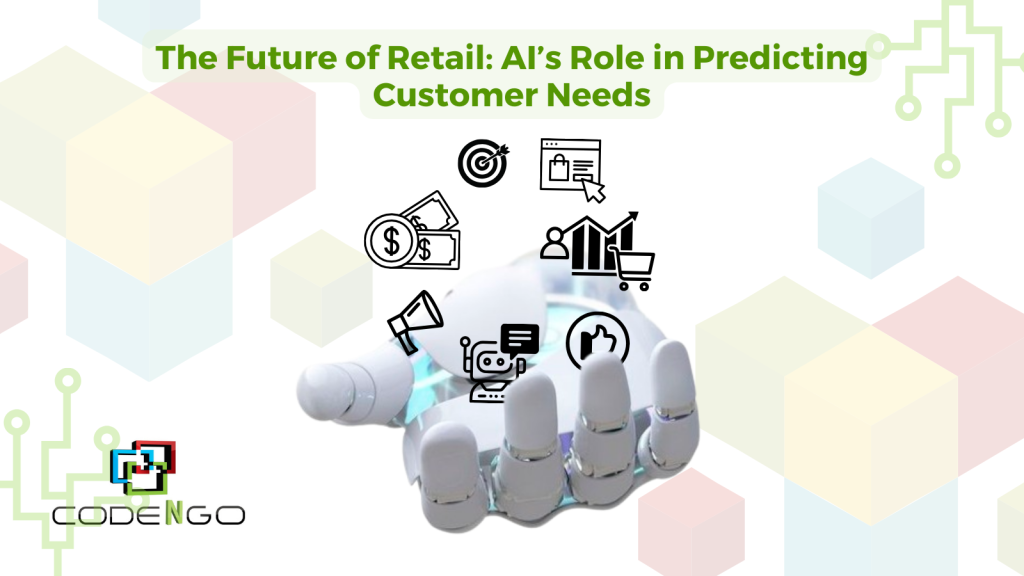The Future of retail is rapidly evolving, driven by the transformative power of artificial intelligence (AI). Retailers are increasingly turning to AI to not only streamline operations but also to enhance customer service by predicting and addressing customer needs with unprecedented accuracy. This technological revolution promises to redefine the shopping experience, making it more personalized, efficient, and responsive.

Predictive Power
AI’s predictive capabilities stem from its ability to analyze vast amounts of data in real-time. By examining purchasing patterns, browsing behaviors, and social media interactions, AI can anticipate what customers might need or want before they even realize it themselves. For example, machine learning algorithms can identify trends and predict which products will be in high demand, allowing retailers to manage inventory more effectively and reduce stockouts or overstock situations.
Personalized Recommendations
One of the most significant impacts of AI in retail is its ability to provide personalized recommendations. By leveraging data on individual customer preferences and past purchases, AI-powered systems can suggest products that are tailored to each customer’s unique tastes and needs. This level of personalization not only enhances the shopping experience but also increases customer loyalty and satisfaction. Retailers like Amazon and Netflix have long used recommendation algorithms to great effect, demonstrating the potential for AI to transform customer interactions across various retail sectors.
Customer Service
Moreover, AI-driven chatbots and virtual assistants are revolutionizing customer service by providing instant, round-the-clock support. These intelligent agents can handle a wide range of inquiries, from product information and order status to returns and refunds, freeing up human staff to focus on more complex issues. Advanced natural language processing (NLP) enables these chatbots to understand and respond to customer queries in a conversational manner, further improving the customer experience.
In-Store Innovation
AI also plays a crucial role in enhancing the in-store experience. Smart shelves equipped with sensors and AI can monitor inventory levels in real-time and alert staff when restocking is needed. Additionally, facial recognition technology can help identify loyal customers as they enter the store, allowing staff to offer personalized greetings and recommendations. Augmented reality (AR) powered by AI can also enhance the shopping experience by enabling customers to visualize products in their home environment or try on virtual clothing.
Targeted Marketing
In the realm of marketing, AI enables more targeted and effective campaigns. By analyzing customer data, AI can help retailers segment their audience more precisely and tailor their messaging to resonate with specific groups. Predictive analytics can also forecast the success of marketing strategies, allowing retailers to optimize their efforts and maximize ROI.
Supply Chain
The integration of AI in retail also extends to supply chain management. AI can optimize logistics by predicting demand patterns and identifying the most efficient routes for delivery. This not only reduces costs but also ensures that products are available where and when customers need them.
Competitive Advantage
As AI continues to evolve, its role in predicting customer needs and enhancing the retail experience will only grow. Retailers that embrace AI technology are likely to gain a significant competitive advantage, offering a level of service and personalization that meets the rising expectations of today’s consumers. The future of retail is undoubtedly intertwined with the advancements in AI, promising a more intuitive, efficient, and enjoyable shopping experience for all.
Share this article on